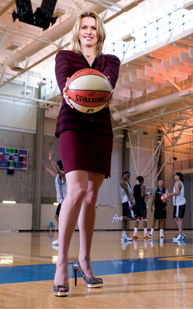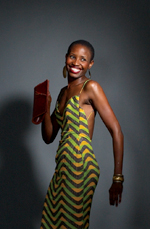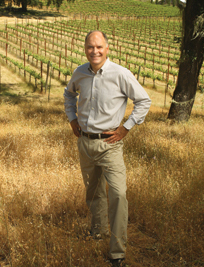Of Passions and Practice

Carla Christofferson.
Photo by Max Dolberg
From her floor seats at the Staples Center in downtown Los Angeles, litigator Carla J. Christofferson was so close to the players that she could feel their power, determination and energy vibrating down the length of the basketball court.
It was Christofferson’s second year as an L.A. Sparks season ticket holder. The WNBA team had enjoyed such an exciting previous season—Chamique Holdsclaw was flawless from the free-throw line, and Lisa Leslie’s stunning dunk during an all-star game was a league first—that she’d decided to upgrade her seat assignment and move closer to the action.
Apparently, it wasn’t close enough. During a game in July 2005, she suddenly turned to her good friend next to her and said, “We need to buy this team.”
Christofferson wasn’t kidding. “We really thought it was an undervalued asset. We couldn’t understand how these women who were the best athletes in their field really weren’t known,” she says. With the Sparks’ talent pool drawn from the second generation of Title IX (the federal law establishing gender equity in sports), Christofferson thought a more focused marketing effort could draw the kind of audience the team deserved. And she believed she and friend Katherine Goodman had the chops to devise a winning strategy. Goodman, a former banking lawyer and film industry executive, agreed.
There was only one problem: The team wasn’t for sale. Which only meant the deal took a bit longer to negotiate. On Dec. 6, 2006, Christofferson became the co-owner of a basketball team.
Some might consider ownership in a professional sports franchise to be a full-time job, but Christofferson already had one—as a commercial civil litigator and managing partner of O’Melveny & Myers’ 254-lawyer Los Angeles office. Some might have considered leaving the firm to focus on the team, but choosing sides was never an issue for Christofferson. A seasoned multitasker, she simply started doing both.
BUILDING HARMONY
While Christofferson’s situation is certainly unique, she’s hardly the only lawyer to enter the business world. Popular culture is full of stories of aspiring entrepreneurs who broke free of their firms and struck gold on Wall Street, Main Street or in cyberspace. Yet most of these stories share a similar plot structure: Lawyer goes into business, business makes money, lawyer quits firm to concentrate on business.
But there are a handful of lawyers like Christofferson who’ve approached entrepreneurship a different way. They’ve skipped the step that calls for leaving the practice. Instead they’ve crafted a balance between their two callings, a balance they believe makes them even more fulfilled—and more successful.
That’s been Hubert Lenczowski’s approach for nearly three decades. A solo practitioner in Walnut Creek, Calif., he’s also a winemaker. Lenczowski and his wife, Resa, own and operate Duncan Peak Vineyards in Hopland, about 100 miles outside San Francisco. Although he’s been making wine since his early 20s, he says he’s never wanted to do it full time. “Life is interesting, and it’s fun to have different dimensions and not restrict yourself to one activity,” he says. “I have always found a balance. When I return from my time in the country at the vineyard, I am refreshed and energized, ready to work hard for my clients.”
FOLLOWING A CALLING
Lenczowski says he’s wanted to grow grapes since he was a young child. Growing up, he was able to spend a significant amount of time with family friends in France (his parents were originally from Europe; they fled Poland during World War II). “These people had a winery in Bordeaux, so I became very interested in doing something like that.”
Fortunately, he had what he calls a head start: His parents already owned a weekend house on a patch of land just south of the village of Hopland, where they also kept sheep and some cattle. “As soon as I graduated from law school, I leased the property from them and bought a tractor. Then I converted an old 150-year-old barn into a bonded winery,” he says.
At the same time, Lenczowski was building a law practice in San Francisco representing families and closely held companies in business transactions, real estate transactions and estate planning. He was until recently a partner at the 350-plus lawyer firm Gordon & Rees. “I really love practicing law and helping people,” he says. “But I also knew I wanted a warehouse full of my own wine.”
Uduak Oduok also knew she was destined to follow dual career paths. Right now, she’s a solo practitioner in Lodi, Calif., handling a variety of cases in criminal and civil court. But she’s also building a company she founded last June called Ladybrille.
Anchored by an online “blogazine” of the same name, Ladybrille is dedicated to raising awareness in America about African fashion designers and events, popular culture and style trends. “I get questioned all the time: ‘Why don’t you just pick one?’ ” says Oduok. “But I say, ‘Dynamic people don’t just pick one—they excel in both.’ ”

Uduak Oduok.
Photo by Thomas Broening
Born in San Jose, Oduok lived in Nigeria until she was 13, when she moved back to California. Thin, beautiful and tall—she’s 6 foot 2 in stocking feet—it wasn’t long before she was scouted by a modeling agency. But she always knew that the runway wouldn’t be her only career path. “That money helped me in college, but I passed up a lot of major opportunities in modeling because school was important to me. I knew I needed to have an education and that I could always get back into the fashion industry.”
Fast-forward nearly seven years. Oduok was practicing law and also doing some freelance writing when she took on an assignment to write about how Africa and the West define their beauty ideals. Researching the business of fashion in America and the better-than-expected economics of Africans living in America, she realized she was onto something: “Being so passionate about law and fashion, I thought, ‘I can be the person to bring these two together!’ ”
Of course, some entrepreneurs are driven by a passion for entrepreneurship itself. That’s how Chicago law professor Esther Barron became the business and legal half of a successful handbag business. As the co-owner of New York City-based Elezar, she’s been able to satisfy her lifelong dream of growing a business from the ground up.
Barron had an early taste of entrepreneurship while in college, when she and a friend started a “birthday pack” business offering dorm delivery of birthday cakes and balloons. They started off marketing to the parents of freshmen, and Barron says the response rate was “ridiculously high.” But the venture, which was always informal, albeit profitable, ended when Barron graduated and headed to law school.
For years, she kept her entrepreneurship dreams on hold. Then a childhood friend who was in the handbag biz in New York City called and brought up that she was planning to launch her own line. “When she mentioned that she was going to start looking for a business partner, I said, ‘Me! Me!’ ” Barron recalls with a laugh.
Now on faculty at Northwestern University School of Law’s Small Business Opportunity Center, Barron calls Elezar “my 8 p.m. to 1 a.m. gig.” That’s because she’s careful to keep her business separate from her responsibilities at the center. It’s a division that’s made easy by the nature of her involvement with the business—mostly research-oriented projects, drafting and reviewing.
For Christofferson, however, compartmentalizing her work at the firm and her involvement with the L.A. Sparks is impossible. On any given day, she must split her time between client and office needs while taking a hands-on approach to the team. This means she’s checking in with her co-owner upwards of 15 times a day by phone or e-mail, and she often stops into the office. Then there’s the occasional occupational wild card: In March, she had a five-day trial that took her to Alaska.
“With anything, it ebbs and flows,” she says. “Some weeks, like when I was in Alaska, I was able to shift a lot of the heavy lifting” to Goodman. Other weeks she’s flying to Las Vegas to see if a company’s interested in becoming a team sponsor. “Every day is different; you just have to go with what you have to do that day.”
Making it easier is the fact that O’Melveny & Myers is behind her efforts. “I have made a point every step of the way to make sure the firm is involved, not to let down on any obligations, and in turn they’ve been very supportive,” she says. But she also points out that she’s spent some 15 years at the firm building that good will. It also didn’t hurt that Christofferson hired the firm to do the team’s transactional work—a business relationship that didn’t come with an employee discount. “I did not ask for one and I did not get one,” she says, adding, “I sort of believe O’Melveny is worth our rates.”
Lenczowski’s firm also benefited from his entrepreneurial efforts—the winery not only made him happier on a personal level but also may have helped him sign on more clients. There are, he says, “a lot of unique aspects” about the business of vineyards, wineries and land, aspects that “you have to know to be able to represent someone properly.” He adds that “there’s definitely an understanding of their concerns, and that’s a major part of good representation.”
With the winery, client development is simply “a natural outgrowth of being in the industry—it’s not artificial,” Lenczowski says. “People get to know me and trust me, and then they hire me.”
TAKING A SOLO APPROACH
Although Lenczowski built Duncan Peak while at a big firm, he is finding solo practice a much better match for the way his practice has developed. And because his new office is closer to his house, he’ll shave an hour or so off his commute—giving him more time for his clients and for the thousand or so cases of Cabernet Sauvignon he produces each year.

Hubert Lenczowski.
Photo by Thomas Broening
But operating outside the safety net of the law firm structure can also backfire, as New York City solo practitioner Nance L. Schick found out last December when a few unfortunate events nearly sunk her business.
Inspired by an aunt who had suffered from rheumatoid arthritis, Schick had founded a company called the BOA (for Beauty of Aging) to design, manufacture and sell adaptive clothing for women with physical limitations. With the designs for her line completed and the commissioned samples in hand, she had reached the point where a concerted investment of time and money was required to take the business from the development phase to the sales and manufacturing phase. That’s when things started to unravel.
As bad luck would have it, her only legal assistant decided to quit at about the same time that the freelance Web designer who was supposed to be overhauling her business’ site disappeared. When her office intern left, too, continuing on became officially impossible. “I didn’t want to give up, but there was a limit to what I could reasonably do because it was just me,” Schick says.
Rather than abandon the business, however, Schick decided to work on retooling it, and she’s considering moving from a manufacturing business model to a consulting service or clearinghouse for adaptive products made by others.
There’s no need to convince Oduok that solo practice has made it easier for her to build Ladybrille. She does concede that the administrative work of maintaining a solo practice can be stressful, but she appreciates being able to control the amount of work she takes on and the opportunities she chooses to pursue. “There’s also so much creative freedom when you run your own shop,” she says. Were she to work for someone else, “I wouldn’t be able to get up and say, ‘Hey, I need to fly to Africa to cover a story.’”
When Oduok graduated from law school back in 2001, she recalls someone telling her that she was “too dynamic” to ever fit in with a large firm. The comment vexed her at the time, but she’s come to embrace it.
“That ‘too dynamic’ is what’s allowing me to do my own thing,” she says, “and to have the foresight and vision to do something I feel is truly revolutionary.”
Correction
In "Of Passions and Practice," July, the company founded by Nance L. Schick should have been referred to as THEBOA.The Journal regrets the error.
Jenny B. Davis, a former ABA Journal assistant managing editor, is a lawyer and senior reporter for Texas Lawyer.



